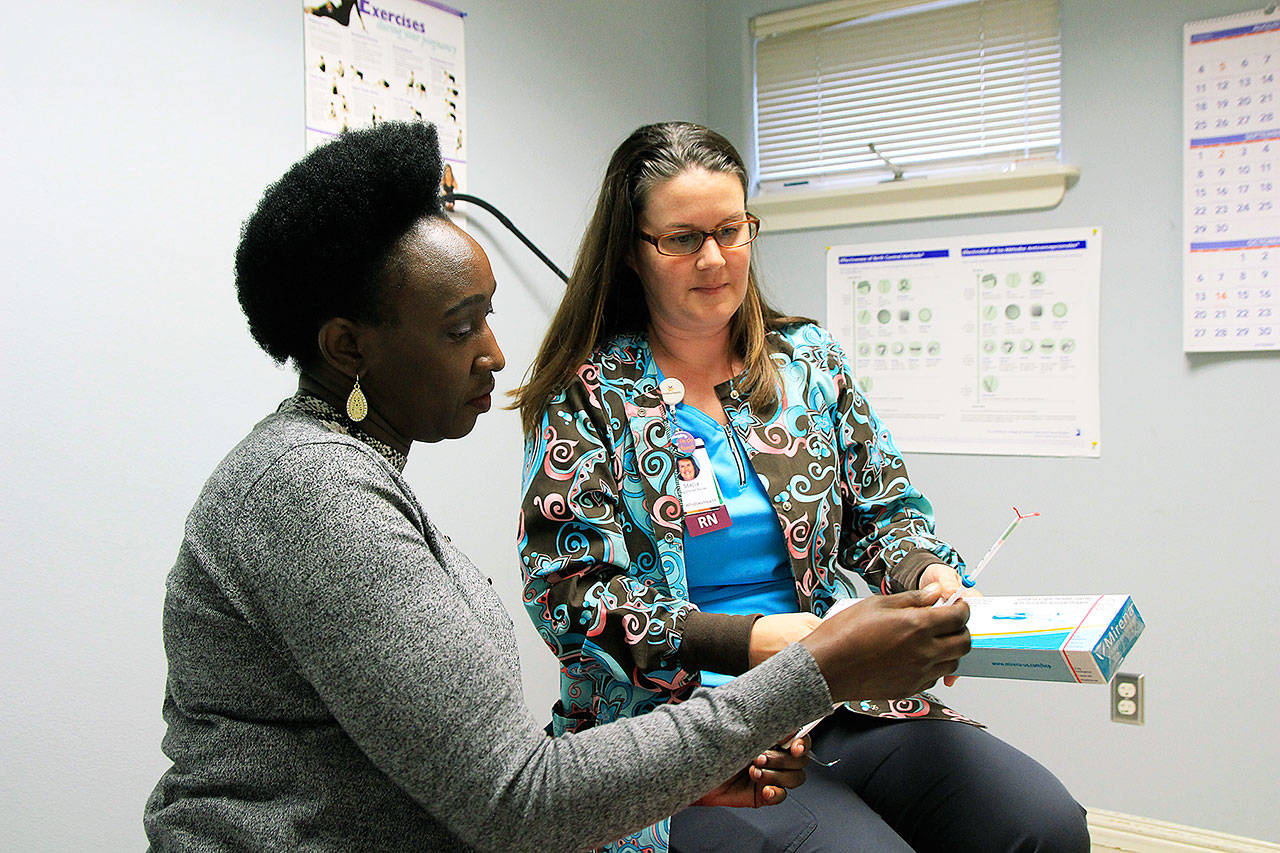Women’s health care shouldn’t be considered a specialty area of medicine, according to Tabitha Sierra, patient safety and experience coordinator at WhidbeyHealth.
“The intent to get pregnant or making choices about your body are not a specialty care assignment,” Sierra said. “It is part of your fundamental well being as a woman.”
With limited options for women’s clinics on Whidbey, it could be difficult for many patients to access contraceptives or even accurate and up-to-date information about available methods.
Until this month.
WhidbeyHealth partnered with the nonprofit Upstream to provide training and materials to staff at all its clinics to ensure patients can receive same-day access to the birth control method of their choice. There are a number of barriers to women going to their health center multiple times, said Chelsea Waliser, Upstream Washington state executive director, and the idea is to reduce the burden for those seeking guidance on family planning.
Upstream works in Delaware, Massachusetts and North Carolina, as well providing its free services to 12 health systems in Washington state.
In April, the nonprofit’s team traveled to Whidbey to assess how best to implement the program at WhidbeyHealth’s clinics. Its trainers then led an eight-hour session with staff members from each clinic, including front-desk administrators to medical doctors, ensuring everyone had a solid baseline of knowledge.
Part of the session focused on what they called a “trauma backpack,” Upstream Implementation Coach Penny Macharia said, which emphasizes thinking as the patient, considering other issues at play and empathizing with them.
Staff received information about every form of birth control identified by the CDC and their pros and cons. Then they took turns playing the role of patient and health care provider. The trainers provided carefully formed questions to help understand the patient’s pregnancy intention and determine the best course of action.
“A lot of patients don’t know what they want,” said Stacia Ott, registered nurse at Women’s Care clinic in Coupeville.
Sierra said that women’s health and contraceptive knowledge with providers outside the women’s clinic is sometimes inconsistent depending on what they learned in school or dated because of the recent rapid changes made in the technology.
She said it’s important for those providing care to feel confident and capable in helping their patients make decisions about family planning.
There are a lot of misconceptions about some of the methods, said Ott. The tools, such as the IUD, have changed a lot in the last five years and are “much safer,” she said.
There’s also an emphasis on ensuring young women and teenagers are having their needs met. Healthy Youth Survey data shows many high school students in Island County are sexually active, and Sierra said it’s important to protect these girls from having unintended pregnancies.
If women do want to get pregnant, the providers and practitioners were also trained to help them achieve that goal as well.
“We’re not pushing anybody into birth control,” said Macharia. “We just want to support women.”



